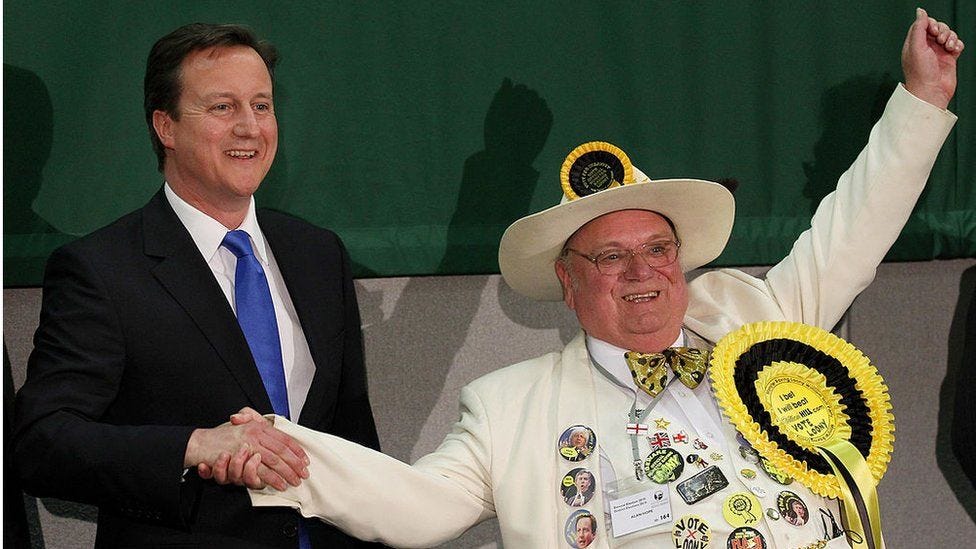A Dangerous Fusion of Information and Entertainment ?
On a strange question
Politicalcompass.org has long been one of my internet nemsis; by the mere act of staking out a good domain name and decent web-design for the early 2000s internet obscure Kiwi Journalist Wayne Brittenden has managed to inflect an immense blow in our collective understanding of politics. I won’t ennumerate on the flaws of the quiz beyond leaving a link to a far better critique by Rational Wiki . In general I find attempts to boil down non-numeric concepts and data into numbers always confuses and looses more than it explains. Nuance is important and to boil things down into a number simply reinforces one’s own initial bias rather than allowing an objective evaluation of politics. Though it is part of now rather obscure online political culture of the early 2000s internet which I was only perpherialy involved with through my involvement in the NationStates project. The world of net-root nations, rabid Bush hating and quaint flame-wars with neo-nazi that seem almost idyllic compared to the hell-scape of the last few years.
There is one question however from the quiz that caught my attention and think is worthy of further exploration. “Do you think there is now a worrying fusion of information and entertainment?”. A strange, leading question that’s hard to interpret. A literal interpretation of the question seems strange, Infotainment is hardly a new concept and it’s be a recurrent education dream for learning to be made so enjoyable that it can be done without the need for discipline or any for of coercion. Alas real attempts have often failed to strike the right balance, and while edutainment has done brisk business; It has yet to be able to demonstrate the ability to actually teach in the absence of traditional methods. One could perhaps worry that too much attention is being paid on making learning fun at the expense of teaching things traditionally but that seems rather strange thing to strike as dangerous.
The more traditional approach would be viewing things like the 24/7 news cycle and reality tv, with the election of Reality Tv star Donald Trump being the result of the degradation of the media enviorment that resulted in people treating politics as simply another form of entertainment. A modern take would be about the dangers of social media and the misinformation it causes(though it’s important to note that this questionnaire is a relic of the early 2000s internet pre-dating widespread adoption of social media). And to that I do deeply worry, the democratic liberal idealism of the Arab springs had given way to despair at the onslaught of propaganda. Facebook stands accused of fanning the flames of the Rohingya genocide; while Israeli soldiers post videos of their war-crimes in Gaza. Yet is this not a critique of all-mass politics; the idea that the masses are simply incapable having genuine political opinions and that there support for any idea unpopular with the commentary is merely the result of brainwashing and manipulation. The idea of young people being left-wing or protesting wars for clout is as old as Nixon and his hippy punching. The news is already grim enough and to act like the mere introduction of levity into it spells disaster is to simply gatekeeper and reject ideas that one dislikes. I find myself split on this issue and as frustrating as it may be can not conclude one way or another. Often I find myself tearing my hair out at the egregious misinformation spread by social media or it’s more perverse cousin (the contextless fact-gallop where the presentation of strictly true facts without the actual context leaves one with a misleading picture). I’m particularly annoyed at the growing generation discourse based on a distorted media-driven view of the past where people seem to ignore actual history with the one presented to us through pop-culture osmosis to engage in reactionary revanchusim.(through the lens of having some sort of right stolen from us by past generations); but I must control my own biases here. Much of what is spread is accurate and to act as if i’m superior to prefer getting my information from dry text is pure snobbery.
There is a second deeper critique here; which is perhaps more postmodernist; where information is processed not through the lens of accuracy but rather ideological predelictions. We prefer information that entertains us rather informs us. We discard inconvenient facts and refuse to engage with what we find boring. I often wonder this regarding the current media and the picture it presents. The western media refuse to discuss Africa except when the conflict forms a prism through which domestic concerns can be reflected; there is little nuance in the way issues are depicted. Everyone is free to serve themselves from a buffet of selected facts to support whichever political niche one has crawled themselves into. And the worst part is..that we do it to entertain ourselves. We read sites reporting on polling that adds no value to anyone’s life; ignore stories regarding concerns and causes we may influence. Political journalists become sport journalist chronnlcoing elections as if they are races; with spectators impotently yelling and throwing money at a vain hope to have some influence on the contest. it’s a depressing picture and indeed a depression fusion of information and entertainment.


